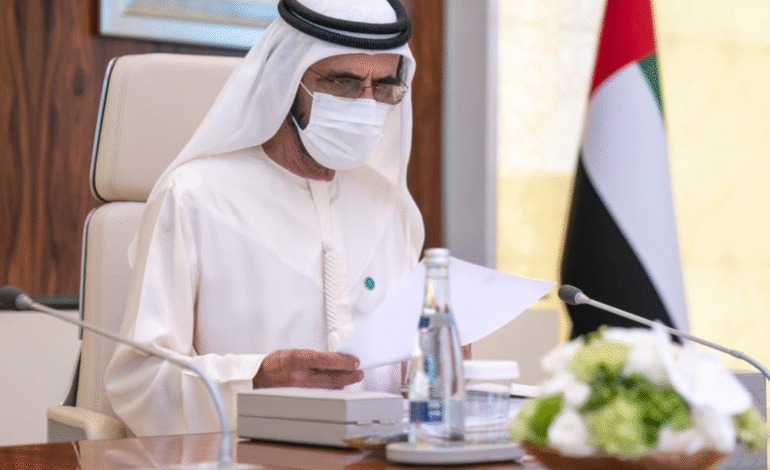In a landmark move to protect citizens and promote fairness in the construction sector, Sheikh Mohammed bin Rashid Al Maktoum, Vice President and Prime Minister of the UAE and Ruler of Dubai, has issued a new law to resolve disputes arising from citizen housing building contracts. The law will officially come into effect starting January 2026 and is expected to transform the way housing conflicts are addressed in Dubai.
This initiative reinforces Sheikh Mohammed’s ongoing commitment to transparency, justice, and social stability, ensuring every citizen receives the housing support they are promised without falling into legal or contractual limbo.
Introduction to the New Law
The Dubai citizen housing dispute law sets out a clear legal structure for resolving disagreements related to government-funded housing construction contracts in the emirate. This means any issues between citizens and contractors, such as project delays, quality disputes, or financial disagreements, can now be resolved swiftly and fairly.

The law reflects Dubai’s vision to ensure every citizen has access to secure, reliable housing and that no one is left dealing with unresolved building disputes.
Why the Law Was Needed
In recent years, the growing demand for housing in Dubai has led to a surge in construction activity. While the government continues to provide generous housing grants and assistance programs to Emirati citizens, several reports have surfaced regarding contractual delays, poor construction quality, or disputes over pricing.

These conflicts often resulted in long legal battles, emotional distress, and financial strain for the citizens involved. Recognizing this challenge, Sheikh Mohammed acted to introduce a structured, official system for resolving such issues.
Scope of the New Dubai Citizen Housing Dispute Law
The law applies to:
- Government-funded housing projects provided to Emirati citizens
- Contracts signed between citizens and construction firms for residential properties funded by housing grants
- All disputes related to housing project implementation, including cost disagreements, delivery delays, contract breaches, and substandard construction work
It is applicable only within Dubai and will be enforced starting January 2026.

Key Features of the Law
Here are the key highlights of the new Dubai citizen housing dispute law:
- Establishment of a specialized committee to review and resolve disputes
- Swift timelines for processing complaints
- Mandatory pre-approval of contract templates by government bodies
- Protection of citizens’ financial and legal rights
- Accountability for contractors who fail to meet quality or deadline standards
- Possibility of mediation or court referral in unresolved cases
Legal and Administrative Framework
The law outlines the creation of an independent Dispute Settlement Committee under the jurisdiction of Dubai’s housing authorities. This committee will:
- Accept and review complaints filed by citizens
- Investigate disputes through documentation and inspections
- Issue legally binding decisions within a specified timeframe
- Refer unresolved or complex cases to courts if necessary
The committee will be supported by legal professionals, engineers, and housing experts to ensure accurate and fair judgments.
Impact on Citizens and Contractors
The new law is designed to benefit all stakeholders in Dubai’s housing ecosystem.
For citizens, the law offers greater peace of mind and confidence in the housing process, easy access to justice without prolonged court proceedings, and legal support to challenge delays or poor construction.
For contractors, the law brings clear expectations regarding timelines and quality standards, pre-approved contract frameworks to reduce legal ambiguity, and accountability in case of non-compliance.
This balance is expected to promote trust, transparency, and professionalism across the sector.
Role of the Dispute Settlement Committee
The Dispute Settlement Committee is the heart of the new legal process. It serves as the first point of contact for any citizen with housing-related complaints. Its responsibilities include:
- Accepting electronic or in-person submissions
- Conducting site visits and expert evaluations
- Mediating between both parties
- Issuing binding decisions or penalties
- Coordinating with judicial authorities when needed
The committee must act quickly. Many cases will be resolved in less than 60 days from the date of filing.
Steps for Filing a Complaint
Citizens facing issues with their housing construction can follow these steps under the new law:
- Gather documentation, including contracts, receipts, construction progress photos, and any correspondence.
- Submit the complaint through the official housing authority platform or directly at the Dispute Settlement Committee.
- During the investigation phase, the committee will notify the contractor, request further documentation, and may conduct site visits.
- A legally binding verdict is issued. Both parties must comply unless the matter is escalated to court.
Transparency and Legal Protection
The law emphasizes legal clarity and transparency in all housing contracts. Going forward:
- All citizen housing contracts must use standardized templates approved by authorities.
- Contractors must meet licensing and insurance requirements.
- Penalties for false claims, forged documents, or attempts to manipulate evidence will be strictly enforced.
This legal backing will protect both citizens and the integrity of the housing support system.

Reactions from Legal and Construction Experts
Legal experts have praised the law for bringing efficiency and accessibility to a space that was previously hard to navigate for ordinary citizens. According to Emirati legal advisor Fatima Al Hammadi:
“This law simplifies what used to be an intimidating process. It’s an example of laws being made for the people.”
Construction industry representatives, while initially cautious, acknowledge the law’s benefits.
“While it holds us more accountable, it also brings standardization and trust. It’s a win for everyone,” said Saeed Al Junaibi, a project manager at a major housing development firm.
The Law in Line with Dubai’s Vision
This new housing dispute law is part of Dubai’s broader Vision 2040, a strategic plan to ensure sustainable urban growth, social welfare, and modern infrastructure for all citizens.
Key elements of this vision that align with the law include:
- Empowering citizens through legal tools
- Streamlining government services
- Promoting accountability in construction
- Enhancing quality of life and housing standards
Final Thoughts
The Dubai citizen housing dispute law, set to take effect in January 2026, is a major milestone in the emirate’s efforts to ensure fair housing practices and protect its citizens’ rights. By establishing a dedicated committee, legal procedures, and strong protections, Sheikh Mohammed has taken a forward-thinking approach to solving one of the most persistent challenges in Dubai’s housing sector.
This law is more than a legal reform. It is a promise that the leadership of Dubai is listening, adapting, and acting in the best interests of its people.
As the city continues to grow, laws like this will ensure that deve
Do follow UAE Stories on Instagram
Read More: Dubai Mall Announces Drop-Off Point Changes to Improve Traffic Flow














